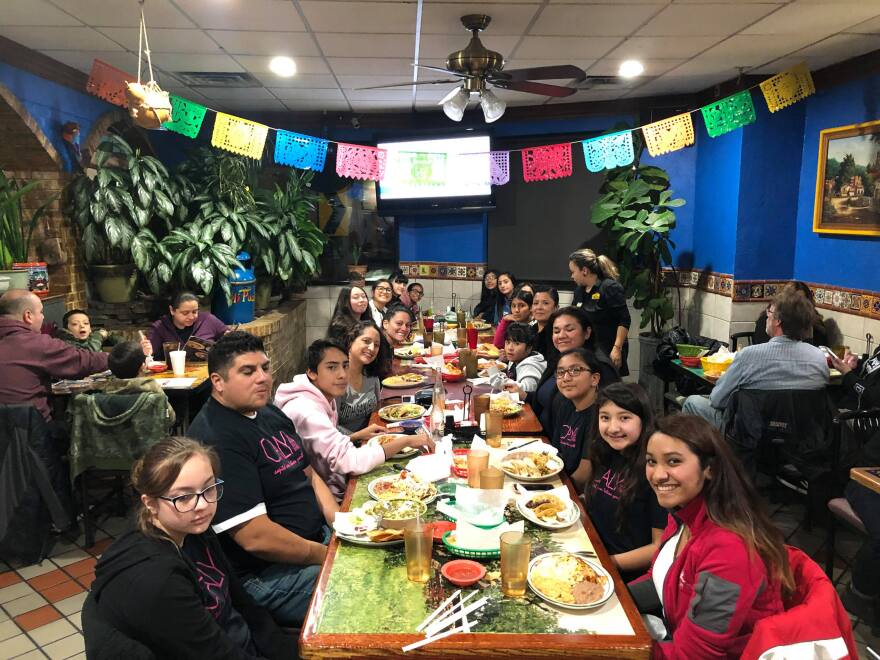Maria Serrato’s journey to create a space for Latina youth began the day after the 2016 Presidential Election.
“I felt alone. I felt defeated. I felt like I was voted against. I just felt like anyone who voted for '45' that they didn't care about me," she said. "Me as a woman. Me as a Latina.”
When Donald Trump announced his candidacy for president the year before, in June of 2015, he singled out immigrants from Mexico in his speech.
“When Mexico sends its people, they’re not sending their best. They’re not sending you. They’re sending people that have lots of problems, and they’re bringing those problems with us. They’re bringing drugs, they’re bringing crime. They’re rapists," Trump said to a crowd of supporters.

Serrato said she wanted to create something to counter that narrative.
“I have two daughters, a now 14-year-old and a seven-year-old. And I just kind of felt like I need something for them. I needed to leave them with something because I kind of felt like I'm not going to be here forever," she said. "But then they're going to be here still. And they need some kind of foundation that is supportive of, specifically, just them.”
In 2017 Serrato launched Capital Area Latina Youth, or CALY, with a gathering at the Capital Area District Library.

“That first meeting was for these girls that showed up, about a good chunk of girls, like 10 to 15 girls, who were between the ages of 10 and 17. And they were in a room with 13 other Latinas who identified as Doctor. So, I needed them to know, you can do that," she said.
Since that first meeting, Serrato has invited dozens of Latina guests to show girls that even if they don’t always see themselves represented, there are opportunities for them to be who they want to be.
“Sometimes it's like fun and relaxing, like cooking with Kelly, you know, we had a sous chef from Michigan State come in and teach the girls how to make a dish," she said.
Other times, she said she tries to tackle difficult topics like consent and human trafficking. Those types of conversation are not always discussed in Latinx communities.
For one of the programs last year, Serrato invited an organizer from the Washington D.C.-based organization Rights 4 Girls to talk about why girls of color are more likely to be incarcerated when they are victims of human trafficking and sexual violence.
“So, by the end of this program, many of us moms were crying, including me, and none of the moms had left. If that says anything about the impact of this program, and how important this topic was to discuss with these girls. It's likely that many of the girls will never, you know, come across that situation in their lives, but they may know someone who has," she said.
Jovanna Gallegos is a senior at Eastern High School in Lansing. She’s been a part of CALY since the sixth grade.
“I met more people who I guess kind of look like me. Like we have like, similar skin color and especially, like, living in a mostly white society its kind of nice to see people who look like you," she added.
For Serrato, CALY is a way for her to nurture her younger self and create the space she wished she had when she was growing up.

“This is specifically a space for Latina youth and children who identify as nonbinary to come here. Because like I said, this is one of the few spaces they can be in where they look, [and] where the person that's talking to them looks like them," she added.
As schools return to in-person learning, Serrato says she is looking forward to finding a way for the girls to come together again.




